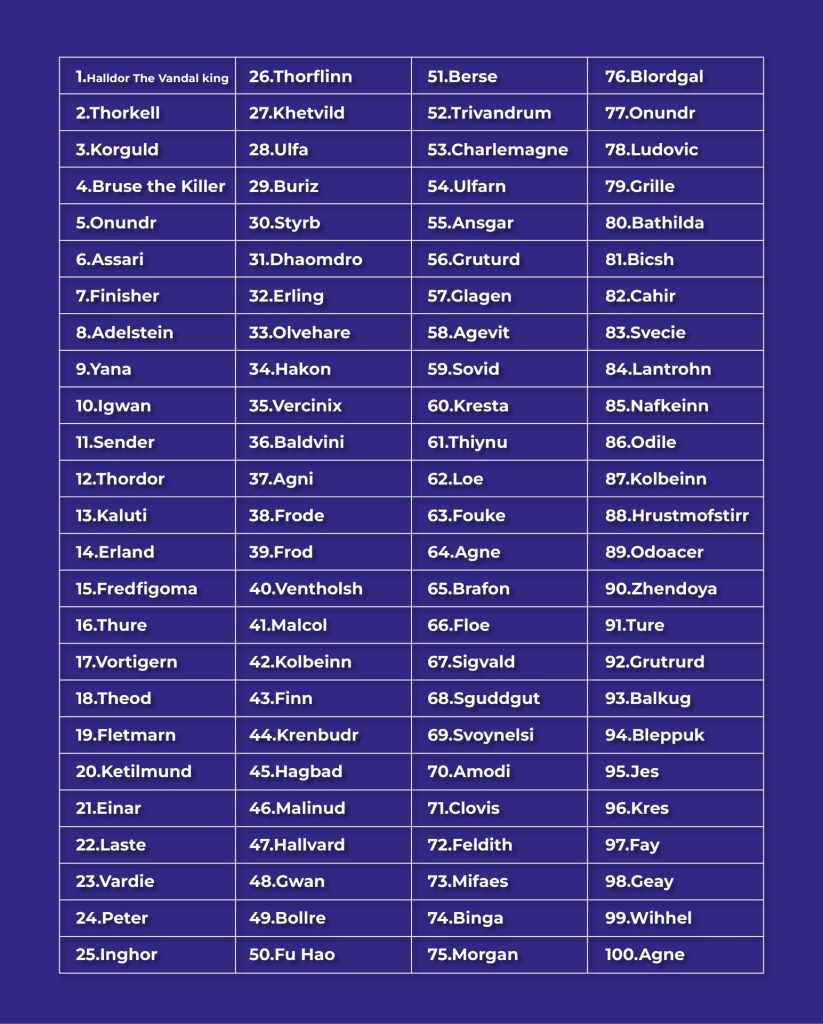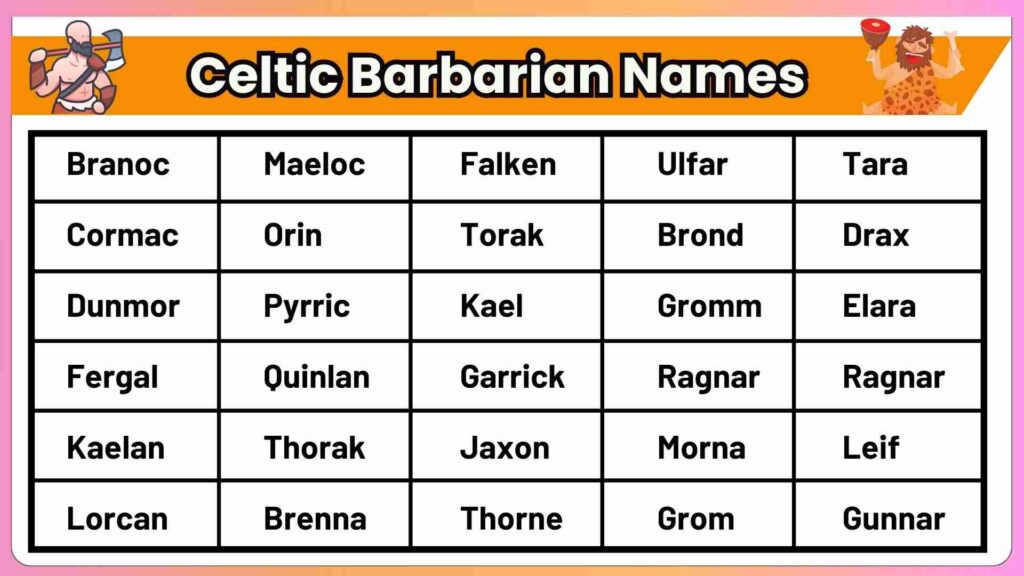Top Barbarian Names: History, Myths & Fiction
What defines a barbarian? Beyond the crude stereotypes, barbarian names often embody a raw power and untamed spirit, echoing a history rich with conflict and cultural clashes.
From the steppes of Asia to the forests of Germania, the term "barbarian" has been applied to countless groups by those who considered themselves civilized. These groups, often tribal societies with distinct customs and languages, were seen as a threat to the established order. However, the label "barbarian" often obscured the complex realities of these cultures, reducing them to caricatures of savagery. What it truly meant to be a barbarian differed drastically depending on the perspective of the observer. To the Romans, for example, the Celts, Gauls, and Germanic tribes were all considered barbarians, despite their significant cultural differences.
| Name | Dates (Approximate) | Culture/Tribe | Notable Deeds/Impact |
|---|---|---|---|
| Alaric I | 370/375 410 CE | Visigoths | Sack of Rome in 410 CE, a pivotal moment in the decline of the Western Roman Empire |
| Attila | c. 406 453 CE | Huns | Leader of the Hunnic Empire, known for his military prowess and campaigns across Europe |
| Boudicca | c. 30 61 CE | Iceni (Celtic tribe in Britain) | Led a major uprising against Roman rule in Britain |
| Arminius (Hermann) | c. 18/17 BCE c. 21 CE | Cherusci (Germanic tribe) | Defeated three Roman legions in the Battle of the Teutoburg Forest |
| Odoacer | c. 433 493 CE | Scirian (Germanic tribe) | Deposed Romulus Augustulus, the last Western Roman Emperor, marking the end of the Western Roman Empire |
Example Reference: Battle of the Teutoburg Forest (Britannica)
The waning centuries of the Roman Empire were a tumultuous period, marked by brutal clashes between the Romans and various barbarian groups. These conflicts tested the mettle of fierce warrior leaders, shaping the course of history. Names like Alaric, the Visigoth king who sacked Rome in 410 CE, resonate even today, symbolizing the shifting balance of power in the ancient world. Alaric's audacious act marked a pivotal moment, exposing the vulnerability of the once-mighty Roman Empire and foreshadowing its eventual decline. Similarly, Attila the Hun, with his formidable military campaigns, instilled fear across Europe, his name becoming synonymous with ruthless power.
Boudicca, Queen of the Iceni tribe in Roman-occupied Britain, stands as a testament to the resistance faced by the empire. Leading a ferocious revolt against Roman rule, she demonstrated the strength and determination of those who fought for their freedom. These figures, though labeled "barbarians" by their adversaries, represent the diverse array of cultures and motivations that challenged the Roman hegemony.
From the fierce and powerful names that evoke physical strength and combat prowess, to the unique and exotic names that speak of nomadic cultures and primitive weaponry, the realm of barbarian names offers a vast and fascinating landscape. Consider the subtle nuances of a name like Ragnar, evocative of Viking raiders and their seafaring prowess. Or perhaps the guttural strength of a name like Conan, synonymous with the archetype of the barbarian hero. Whether crafting a character for a game, writing a historical novel, or simply exploring the rich tapestry of names, the options are plentiful.
The impact of barbarian cultures extends beyond the battlefield, influencing language, customs, and even personal names. Male barbarian names often draw inspiration from ancient mythologies and warrior traditions. Think of names like Hermann, the Cherusci leader who orchestrated the devastating defeat of Roman legions in the Teutoburg Forest, or Odoacer, the Germanic warrior who brought an end to the Western Roman Empire. These names are imbued with the weight of history, representing the clash of civilizations and the enduring legacy of these often-misunderstood cultures. Female barbarian names, too, carry a powerful resonance, often reflecting the strength and resilience of women warriors like Boudicca.
Choosing a name for a barbarian character, whether in a game like Dungeons & Dragons or a work of fiction, can be an exciting and challenging task. Do you seek a name that echoes historical figures like Attila or Boudicca? Or are you drawn to the more fantastical names found in fiction, such as Conan or Kull? Consider the specific traits you envision for your character. Is your barbarian a cunning strategist, a fierce berserker, or a wise shaman? The name should reflect the character's personality and background, adding depth and authenticity to their portrayal.
Beyond the individual names, consider the broader context of barbarian tribes and their naming conventions. Tribe names often reflected their origins, their values, or their environment. This level of detail can enhance the world-building and add a sense of realism to your creations. Whether youre seeking a powerful and intimidating name for a barbarian leader or a unique and evocative name for a warrior, the world of barbarian names offers a wealth of inspiration. By delving into history, mythology, and fiction, you can find the perfect moniker to capture the essence of your barbarian character.


